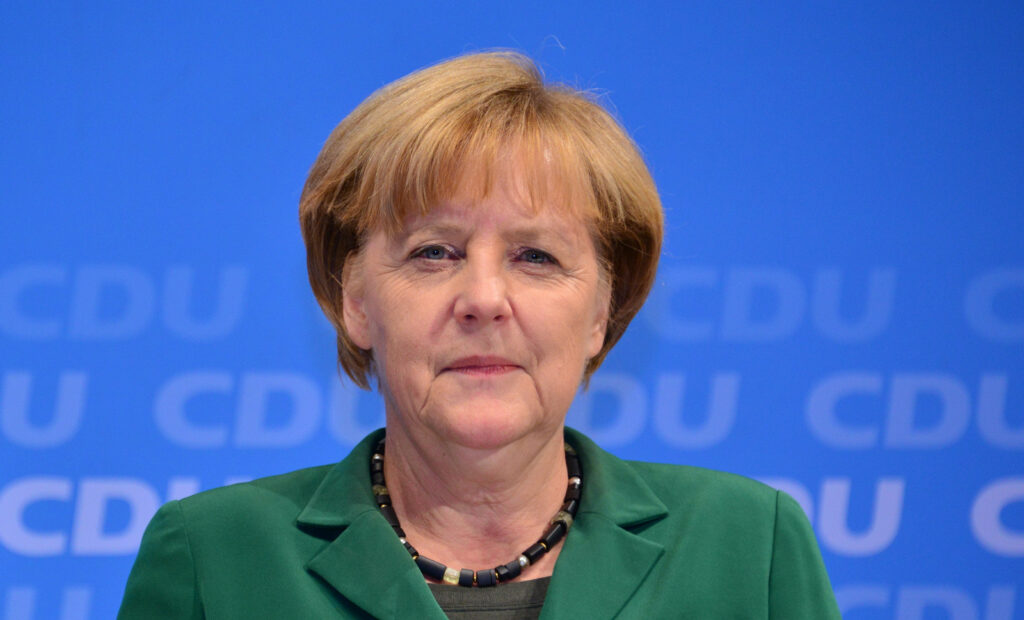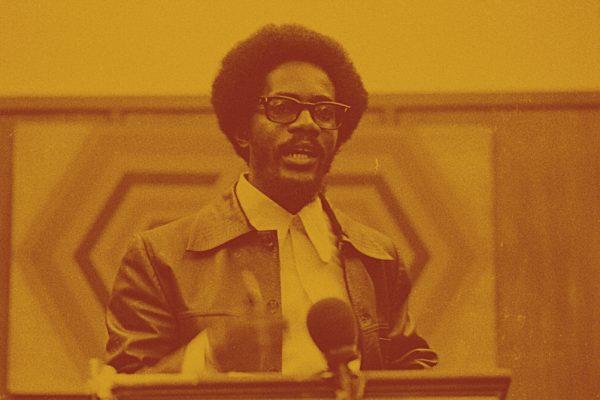The G20 summit on July 7 and 8 in Hamburg, Germany, presents those nations discontent with U.S. global leadership with a golden opportunity to step out of the Unites States’ shadow and embrace a truly new, multipolar world. Distrust of and frustration with the United States has never been greater, among both political leaders and ordinary people worldwide. The G20, with its global perspective, is the perfect forum to work around a belligerent U.S. administration if it proves unwilling to listen to reason. Even though a United States–led free world has long been an anachronism, there has been no viable replacement—either in the form of one state, or multilateral institution, or entente of powers. No country is guiltier of clinging to the fiction of U.S. global leadership than Germany. Now, however, the Trump administration has made that path untenable.
The G20 summit is the perfect opportunity to work around a belligerent U.S. administration—particularly on climate change—and embrace a multipolar world.
Established in 1999, the purpose of the G20 was to shift power from the hands of the developed world’s few to the globe’s many: among them India, Brazil, Mexico, China, Australia, Turkey, Argentina, Saudi Arabia, South Africa, and Indonesia. They represent 85 percent of the global economy, two-thirds of the world population, and over 75 percent of global trade. The Trump administration’s isolationist attitude and chaotic modus operandi leave the door wide open for a competent multilateral broker, such as Angela Merkel’s Germany, to step in and forge new working alliances in the multipolar world order.
As the consequences of global warming continue to make headlines—from extreme weather across the United States and raging forest fires in Portugal to the rapidly melting polar ice caps and rising seas—climate change, and implementation of the 2015 Paris Agreement are at the top of the agenda. There is a significant global consensus that more has to be done to stall climate change, even if there is little unity on exactly what “more” means. But that is the purpose of fora like the G20: to hash out such issues.
The Paris Agreement set ambitious goals, such as striving to remain below a 1.5 degree Celsius rise in global temperatures, but it did away with the difficult question of how to get there—an endeavor for another day. The Hamburg summit is that day: an opportunity to design specific strategies to implement the Paris Agreement, which is in desperate need of shoring up a year and a half after its signing. Among the realistic options include commitments to end fossil fuel subsidies by 2025 and phase out coal production. Experts in Germany’s environmental ministry say a 2050 midcentury target of net zero emissions is entirely possible with international coordination. These and other measures were present in early drafts of the German-authored agenda.
Indeed, all eyes will be on the Germany. Although Chancellor Angela Merkel publicly shuns the title of the new leader of the Western world, she will have no more opportune a moment than in Hamburg to lend it some substance. If Germany can pull off the negotiation of meaningful post-Paris pledges from G20 members (save perhaps the United States), the summit will be hailed as a phenomenal success. Climate experts reckon that we have missed the boat on keeping the rise in global temperatures below the 1.5 degree target, but 2 degrees is still within reach.
Rather than attempting to commit the rest of the G20 countries to serious climate measures, Angela Merkel wants the United States on board at any cost.
Leaving the United States out of a conclusion on climate protection would not make the summit a flop—nor would it particularly offend the United States. After all, the G7 declaration on climate change in May excluded the United States, which refused to commit to the Paris goals, although the country did join its six colleagues—Canada, France, Germany, Italy, Japan, and the UK—on other issues in the final communiqué. Notably, the parts of the declaration that the United States did agree to included vague pledges to continue free trade, which the United States worked to water down until they were acceptable to the Trump administration protectionists. The result on trade, unlike climate, was a lowest-common-denominator compromise determined by Washington.
Critically, the option of forging ahead without the United States is viable even if all nineteen other members are not of one mind. Smaller alliances—even bilateral pacts—can be formed in the wings, on climate and other issues. If the EU, China, and India could agree to implement certain climate goals, for example, they could bring others with them. The trick will be to stop other countries unhappy with the Paris accord, such as Russia and Saudi Arabia, from jumping ship, using the United States’ contrary position as a fig leaf.
But signals from Berlin, just days before the summit’s start, point to an outcome on climate that satisfies nobody. Under pressure from the United States, the summit’s climate change agenda has been dramatically scaled back. “The U.S. massively weakened the language in the energy part of the action plan,” one source with knowledge of the negotiations told the British magazine Climate Change News. “It pushed for references to so-called ‘clean’ fossil fuels and made it less explicit that the energy transition has to be built on energy efficiency and renewables. It also provided cover to some other G20 members—such as the Saudis and Russia—to weaken some climate sections of the document, including the pledge to phase out fossil fuel subsidies.”
The current version of the agenda, following one penned in March, was altered substantially, omitting any mention of the Paris Agreement, as well as removing previous plans to exit from coal production, price carbon, and craft midcentury decarbonisation blueprints by next year. The draft action plan now even refers to “clean technologies such as energy efficiency, renewable energy, natural gas, and nuclear power, for those countries that opt to use it, and advanced and cleaner fossil fuel technologies.”
For the first time in years, climate protection will have no place on the G20’s agenda.
“What this terminology means is that for the first time in years, climate protection will have no place on the G20’s agenda,” explains Sascha Müller-Kraenner, director of Environmental Action Germany, a Berlin-based NGO. “The term ‘clean technology’ hails from the nuclear and gas industries, which use it to suggest an alternative to ‘dirty coal.’ It has nothing to do with climate protection but only with these industries’ market shares.”
Rather than attempting to commit the rest of the G20 countries to serious climate measures, Merkel seems to want the United States on board at any cost. For her, the danger of the summit resulting in disorder outweighs the benefits of a hard-fought, substantive outcome that might not happen. As a result, we will probably see a G20 declaration that makes only vague references to renewable energy and energy security. This might be the outcome on other issues, too, such as aid for Africa, migration management, and free trade. Angela Merkel, in the midst of a national election campaign, will spin these compromises as a victory rather than a setback. She will claim to be a savvy statesperson, the only one who can bring together difficult leaders such as Trump, Vladimir Putin, and Turkey’s Recep Tayyip Erdoğan.
This is why all signs point to a mealy-mouthed compromise to which everyone, including Washington, can agree. If the Merkel administration sells this as a victory, it will be an empty one. Trump will have set the agenda—and let Germany push it through.
Editor’s Note: A version of this article was previously published at International Politics and Society.








